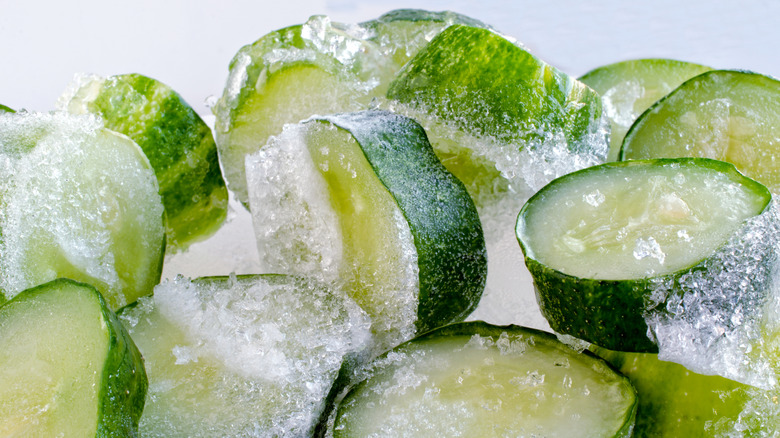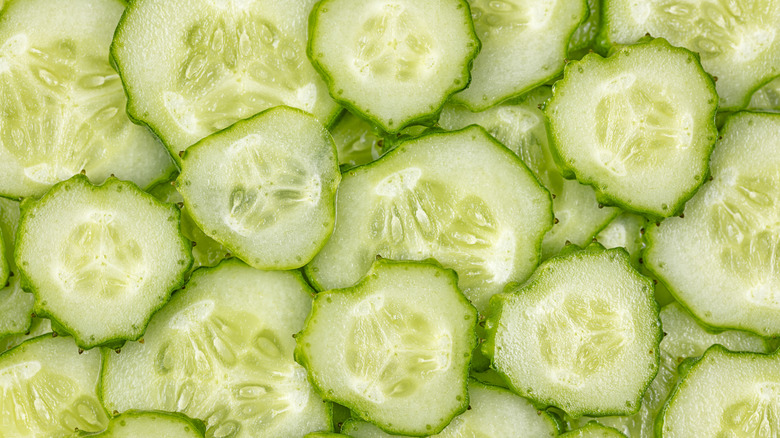The Science Behind Why Frozen Cucumbers Always Get Mushy
If you're the kind of person who keeps your fridge stocked with "just-in-case" ingredients, chances are you've felt the loss of having to throw out entirely good food that's gone bad. Take, for example, those perfectly fresh and crunchy cucumbers you picked up from the farmer's market last week, which have now become mushy. Sure, you knew cucumbers were mostly water, but it never crossed your mind that they could be made up of 97% of it. And it's hardly even your fault you went out for lunch and were unaware that according to the United States Department of Agriculture (USDA), you should consume them within six days of purchase.
So to save what's left, you sit down, scroll through a few kitchen hacks, and settle on turning them into freezer pickles. The process is surprisingly simple: just slice them paper-thin, sprinkle some salt over them, and coat them in a concentrated sugar syrup before tucking them away in the freezer for up to six months. But as soon as you take them out and let them thaw, it's impossible to ignore how soft their texture has become. Why, when you did everything right?
Well, remember the high moisture content? It actually turns into ice crystals when exposed to freezing temperatures. These tend to rupture the cucumber's structural layer, also known as the cell wall. Upon thawing, however, the crystals melt back into water and break down the cells, leaving your cucumbers all soggy and unappetizing.
Is there a way to preserve the texture?
Cucumbers are delicious no matter how you prepare them. Whether you slice them into spirals or add a touch of soy sauce to achieve the ultimate umami flavor, they are a great side dish. But is there a way to keep their texture intact after leaving them in the freezer for some time? While they won't be as crisp as when fresh, pickling gives them a chance at lasting longer. How, you might wonder? The secret lies in the brine — a highly concentrated salt and water solution.
Pickles are preserved through fermentation, a process which results in the formation of lactic acid, which acts as a natural preservative. In contrast, there are two methods of maintaining the crispness of unfermented pickles, according to the "Advances in Probiotics: Microorganisms in Food and Health" publication. The first method involves using a sugary, vinegary brine, while the second relies on using high concentrations of salt, sometimes as much as 16%, to stop spoilage.
But what exactly does salt have to do with preservation? Simply put, it removes excess moisture through a process known as osmosis, which prompts the cucumber to release water and adjust the salt concentration between its cells and the surrounding environment. Once the salt draws the water out of the cucumbers, what's left are beautifully seasoned slices that are ready to add a colorful touch to your plate. Give them a try, you'll be glad you did!

